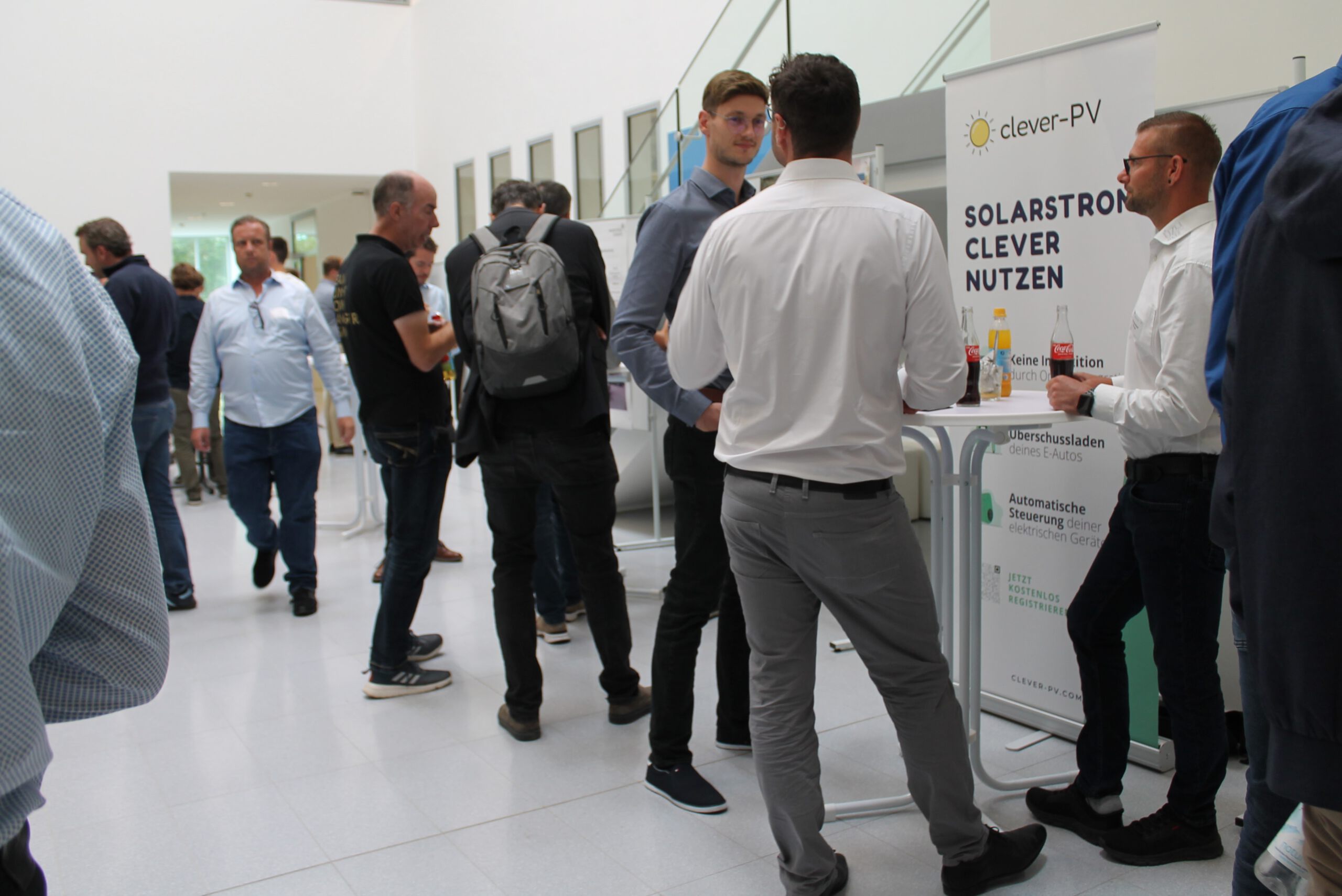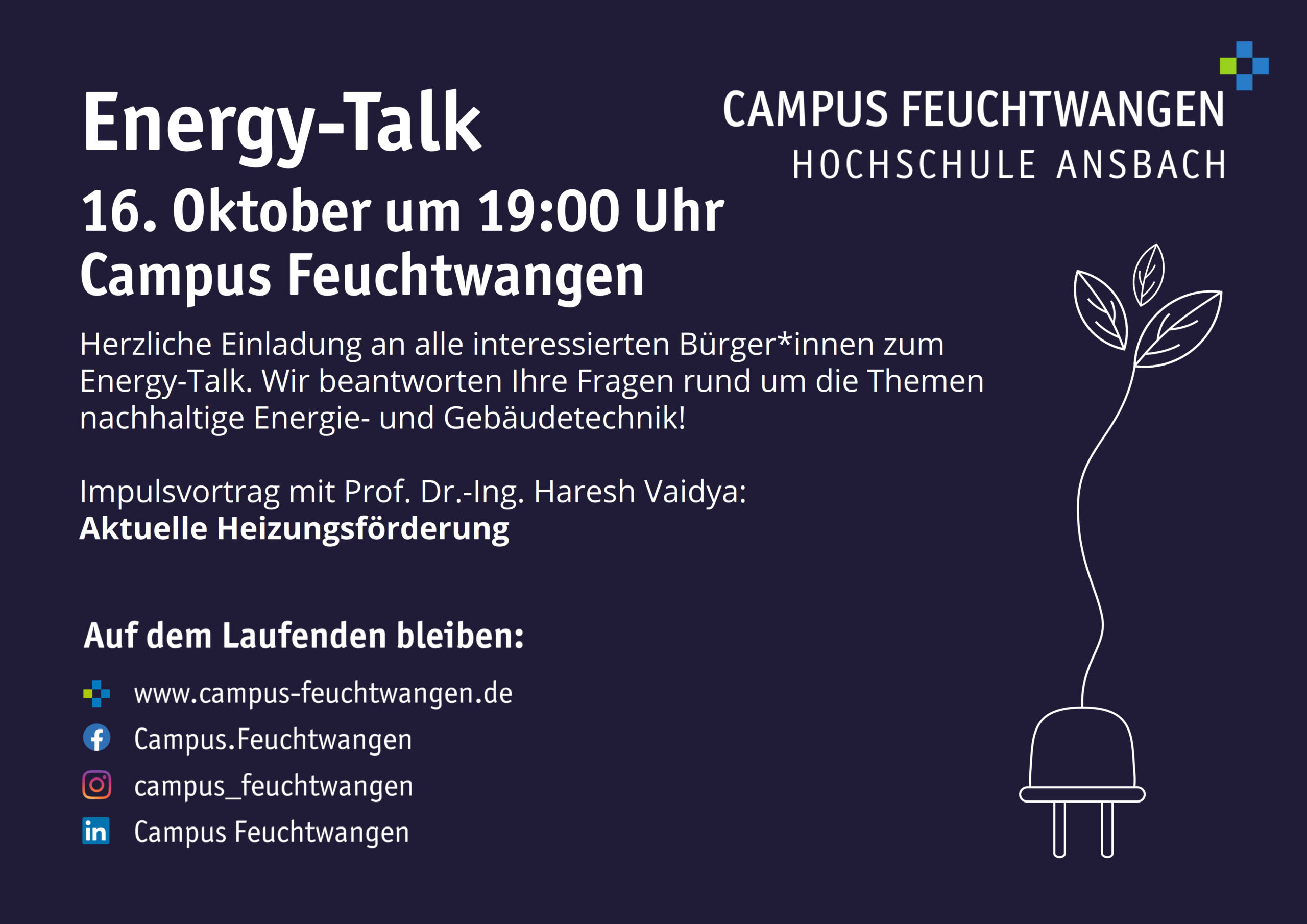The first HEMS symposium was a great success.
Leading experts discuss the contribution of HEMS to the energy transition
Last week, the first HEMS symposium took place, organized by Ansbach University of Applied Sciences and supported by pv magazine Germany. Around 100 participants, including leading experts from the energy industry, technology providers, grid operators, representatives of the Federal Network Agency and the VDE, attended the event at the Technical University of Munich. The main focus of the symposium was on the question of how Home Energy Management Systems (HEMS) can contribute to the energy transition and how these technologies can be used in a grid-friendly way.
The symposium kicked off with a discussion round on interfaces and communication in the field of HEMS. The participants discussed the challenges of standardizing the interfaces. In particular, the importance of cloud and API interfaces and EEBus for future developments in the HEMS sector was emphasized. Despite the technical progress already made, there is still a considerable need for uniform solutions and standardization to facilitate the integration of new consumers into HEMS. The more than 100 participants of the first HEMS symposium were treated to exciting discussions between leading experts.
The poster session offered a special opportunity for leading HEMS manufacturers to present their solutions and exchange ideas directly with the participants. These included well-known companies such as iDM Energiesysteme GmbH, FENECON, SMA Solar Technology AG, myGEKKO, gridX and kiwigrid. This platform promoted the exchange of expertise and offered valuable insights into current developments and innovations on the market.
In the second part of the event, Johannes Ruf from SENEC GmbH and Klaus Nagl from Consolinno Energy GmbH presented their approaches to implementing Section 14a of the German Energy Industry Act (EnWG), which regulates the control of controllable consumer devices for grid stability. They highlighted the technical challenges of integrating HEMS into existing grid structures and connecting to the Smart Meter Gateway (SMGW). Among other things, the question of how to avoid peak loads and make the power supply more efficient was discussed.
Another key point of discussion was the question of the costs of expanding the power grid. Dr. Niklas Vespermann from the Federal Network Agency estimated the costs for the distribution grid expansion at over 300 billion euros. However, smart HEMS systems offer enormous savings potential here, as they can reduce the need for grid expansion through clever load control. These savings are particularly important in view of the increasing electrification of households and the growing demand for energy.
One of the highlights of the event was the panel discussion on the topic of grid-friendly HEMS. Moderated by Dr. Michael Fuhs (pv magazine), Prof. Dr. Thomas Hamacher (TU Munich), Niklas Vespermann (Federal Network Agency), Sonja Baumgartner (LEW Verteilnetz GmbH), Christian Erber (ÜZW) and Frank Borchardt (VDE) discussed the challenges and opportunities of grid expansion from the grid operators’ perspective. The discussion highlighted that simple, practical measures to avoid peak loads could be the key to a more stable and efficient energy system.
In the last part of the event, dynamic electricity tariffs and flexibilities were discussed. Dr. Vadim Gorski from Rabot Energy, Alexander Stöger from FENECON and Dr. Wolfgang Gründinger from Enpal presented how flexible electricity tariffs can offer consumers incentives to optimize their electricity consumption and which flexibilities can be used. These tariffs make it possible to consume electricity when a lot of renewable electricity is being generated in Germany.
The EEBUS Initiative e.V. thanked the organizers for the event and was pleased with the valuable discussions on the topics of interfaces, standardization and interoperability: “These topics will remain central to driving the integration and further development of HEMS systems in the future.”
Participants and organizers drew a positive conclusion and look forward to future events. Thomas Haupt from Campus Feuchtwangen and pv magazine Germany received great thanks for the professional organization of the event.


